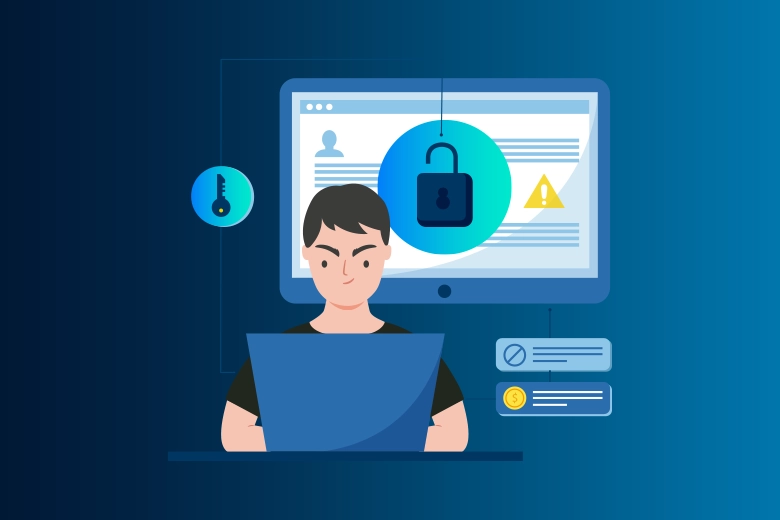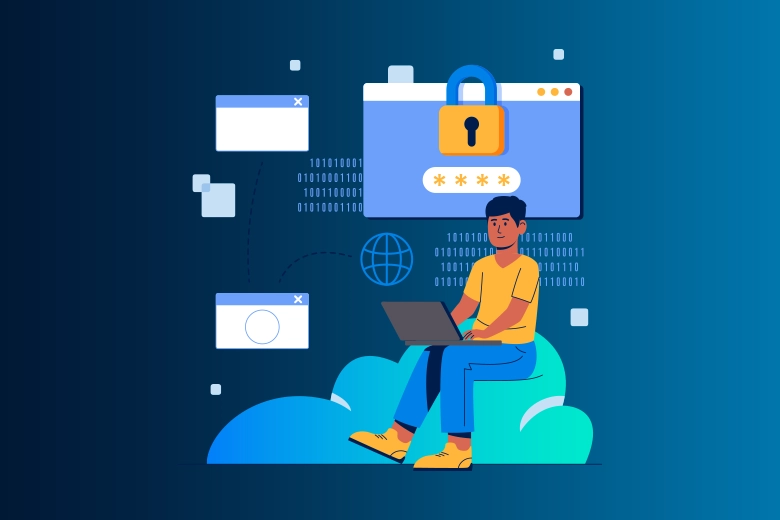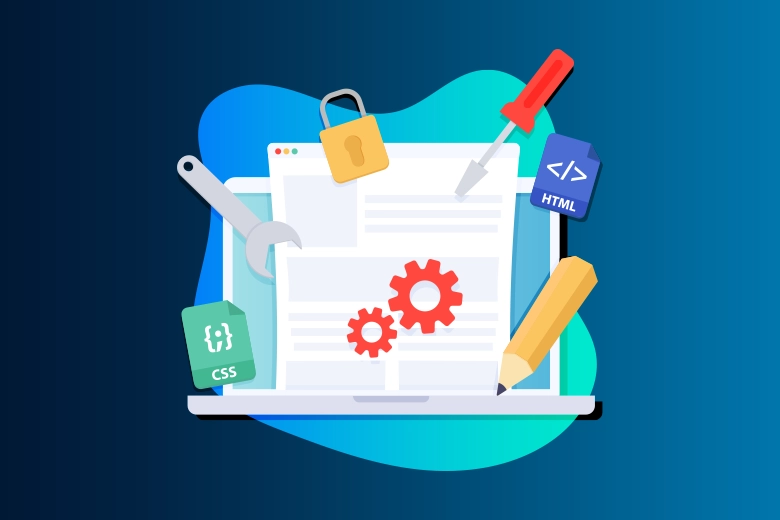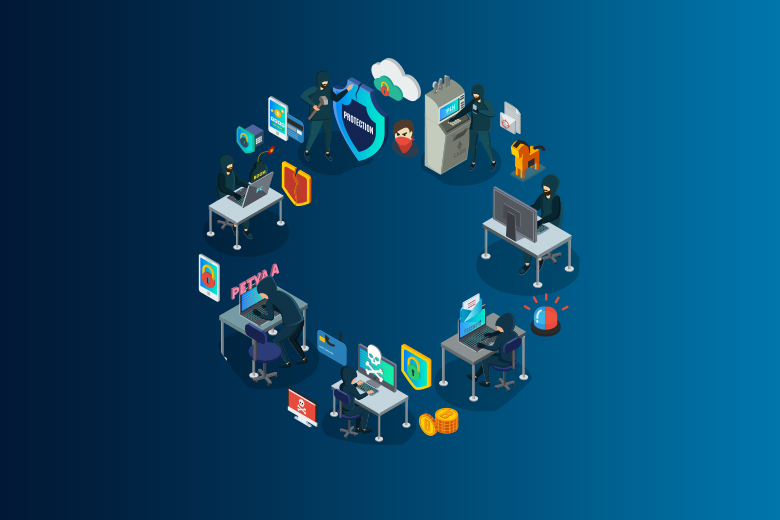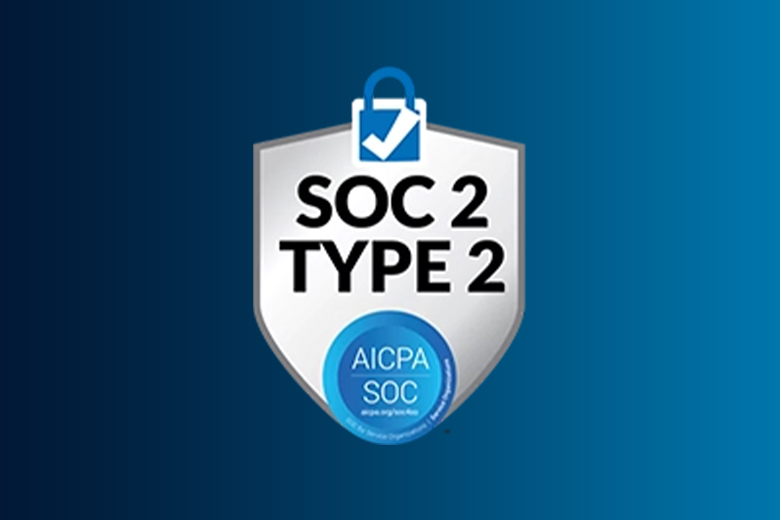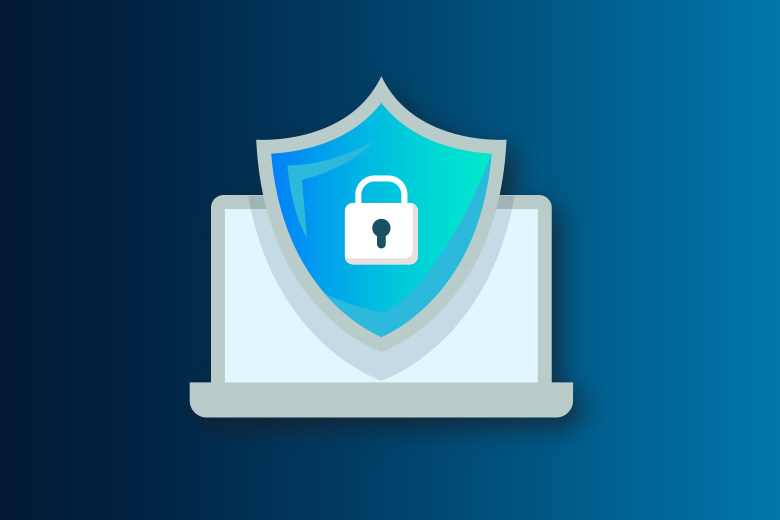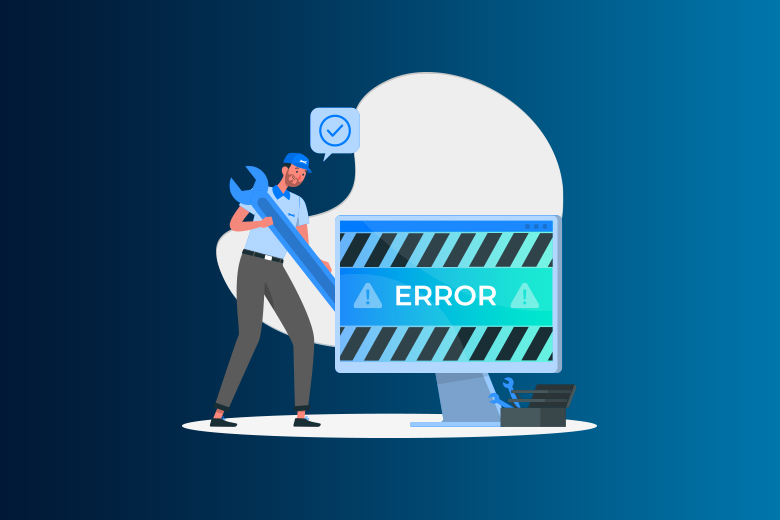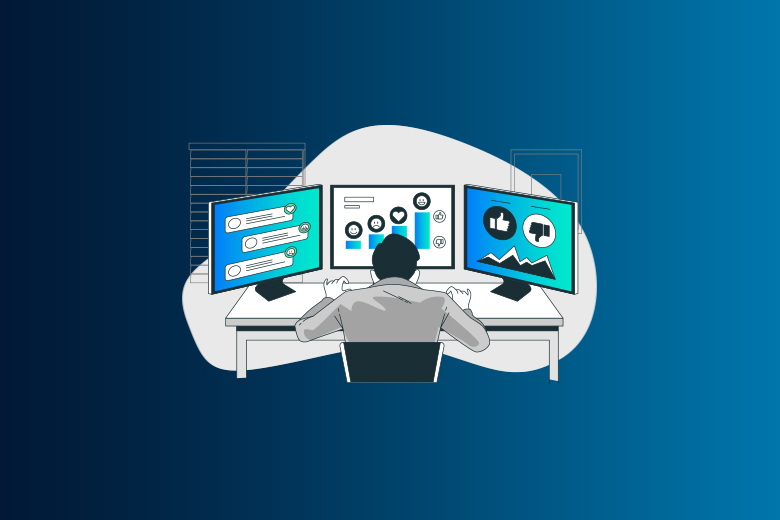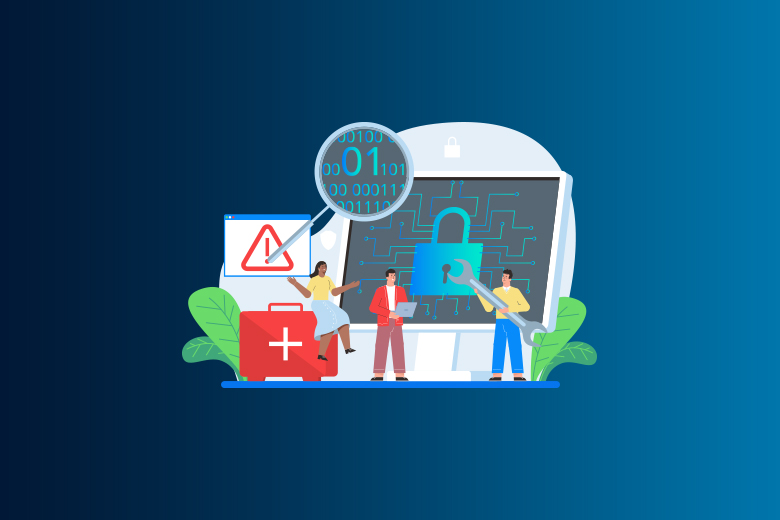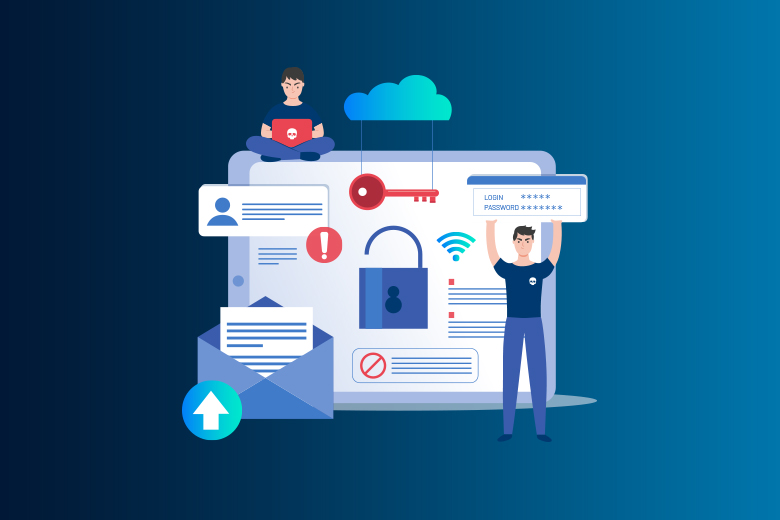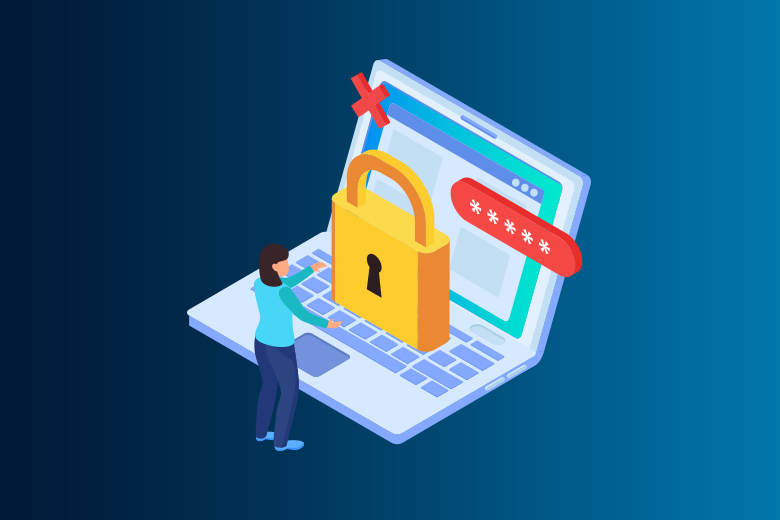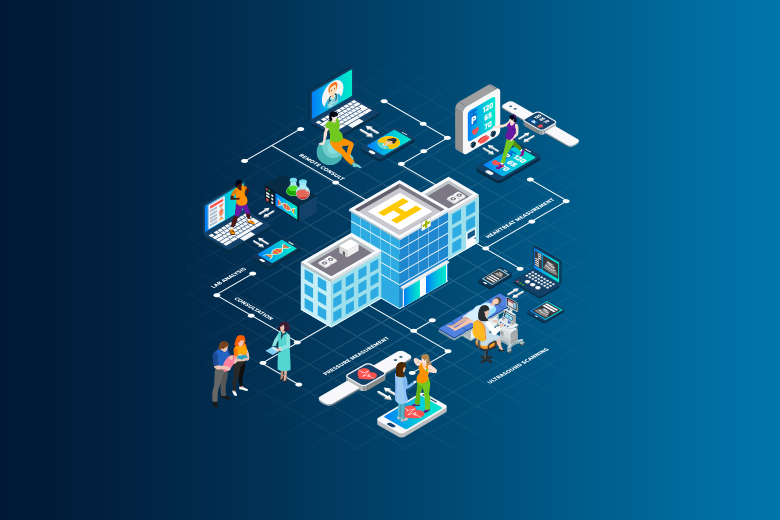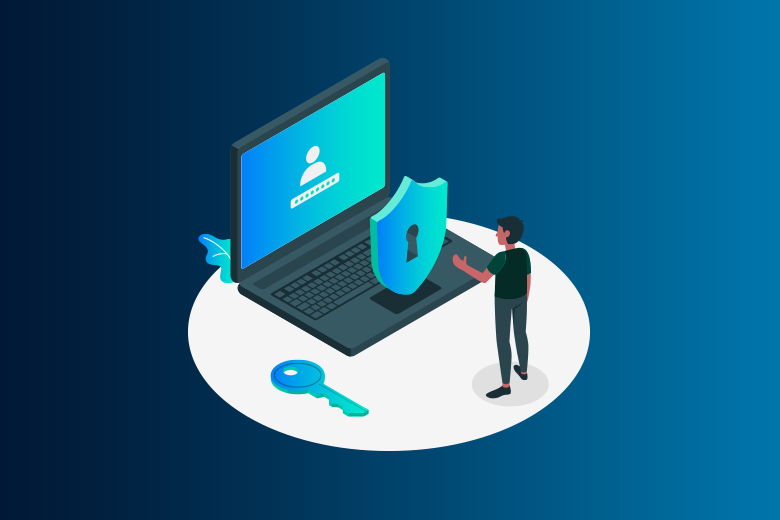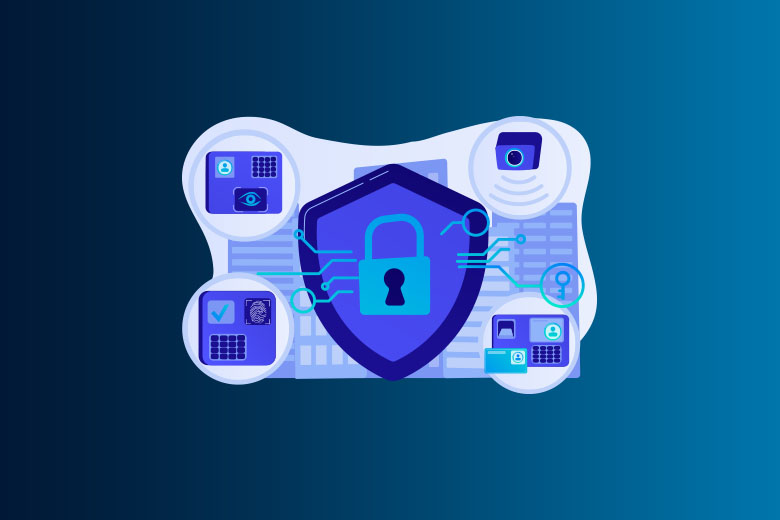17 November 2023
SafeAeon Inc.The internet is an important part of our daily lives because it connects us all. It helps us communicate, do our jobs, have fun, and learn. But because so many people depend on the internet, it also leaves us open to a number of cyber dangers and security holes. The internet is built on the Domain Name System (DNS), which turns domain names into IP numbers that computers can understand. DNS security is very important for keeping our online experience safe because it protects the internet's core.
Recent cyberattacks and data breaches make it clear that DNS security needs to be strong. In 2021, for example, a DNS attack on the Microsoft Azure cloud service stopped it from working for several hours, which affected millions of people around the world. Another case involved a DNS hacking attack that sent users of a well-known cryptocurrency exchange to a fake website. Millions of dollars worth of coins were stolen.
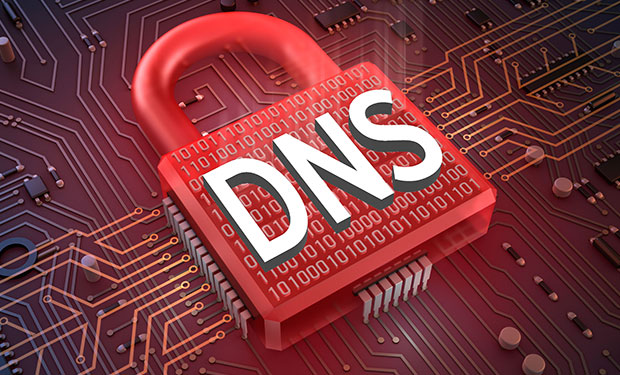
Must-Know Facts and Stats About DNS Security:
- Neustar (NeuStar, Inc. gives you facts and analysis in real-time. It manages Domain name system (DNS) services for both internal and external clients.) says that in 2021, there were more than 100 million DNS searches every day.
- In a study done by Cisco, 86% of businesses said that at least one person had tried to connect to a fake website.
- We think that by 2031, the DNS Security Software Market will be worth USD 1898.37 million.
1. Watch what DNS is doing.
It is smart to keep a close eye on what you do with DNS. Keep an eye on everyone who comes and goes with your online profile, like a security camera. Businesses can spot suspicious efforts to break into their server by keeping an eye on DNS logs. These logs are like a detailed diary—they keep track of everything that happens and show any strange attempts to sneak users to harmful sites using a technique called "cache poisoning." Keeping these logs may slow things down a bit, but they're necessary for security. Remember that you should never turn them off, because that could let hackers in.
2. Keep your DNS cache safe.
When your DNS server finds a website, it stores that information so that it can be found faster next time. But this ease of use comes with a risk: hackers could get in and change the information that was saved. You should "lock" your cached info so that no one else can see it. This lockdown is a common security measure that makes sure this information can only be checked and updated by good guys. It's like having a time-lock safe that keeps track of who visits a website for just as long as it needs to. The best part? It's the best way to protect yourself from those cache-poisoning tricks.
3. Set Clear Limits on Access
An Access Control List (ACL) that is set up correctly will protect your main DNS server. This is like a club's VIP list; it only lets certain people, like IT and system administrators, talk to your main DNS server. You can also choose who can ask for zone transfers when you make this list. Zone transfers basically move information about where a website is located from one server to another. There will be a lot less room for hackers to get in and steal info if you do this right.
4. Key DNS servers that are separate
When setting up DNS, it's safer to keep your authoritative servers (those that decide where websites are located) away from your recursion servers (those that keep looking until they find the right one). This separation makes sure that your system stays safe and that updates only go to the authoritative sites. You should put your generals and scouts in different camps to make sure they follow the right orders.
5. Update the DNS server often.
Think of cyber security as a game of cat and mouse that never ends, with hackers always trying to get in. That's why it's important to keep your DNS server up to date whenever the service releases a new security patch or patch. Not making updates is like not fixing holes in your castle wall—it's a surefire way to get into trouble. If you want to keep up with updates, a centralized server control system can really help. You should always be on the lookout for new versions because your server software might not always let you know when it's out of date.
6. Put in place specialized DNS solutions
When you use custom DNS apps, it's like having a security guard trained just for your building. These specific tools are made just for your business, so they work better and are safer. They let your company change everything, from how much memory is used to how network traffic is handled. Even better, these dedicated computers can run a number of security features that make them very hard for hackers to break into.
7. Make sure your data is safe with DNSSEC
DNSSEC helps make sure that the DNS data your server sends and gets is real, like checking the seal on a food package twice. It helps stop fakes like DNS phishing and cache poisoning by giving each piece of data a unique digital signature. If DNSSEC is turned on, your DNS server will check the data for a digital signature to make sure it is true before accepting it. You can be sure that the information and its source are real this way.
8. Keep your main DNS server hidden.
You should keep your main DNS server out of the public eye so that no one can spy on it. It's like having a phone number that isn't public. By setting up secondary servers, users will connect with these instead of your main server, which is where all the important data is stored. This master server stays out of sight and only sends changes to the secondary servers when they need them.
9. Pause DNS queries for a certain amount of time.
Setting a timer for how fast your server answers to requests from the same IP address over and over is like having a bouncer at the door of a club to keep things from getting too crowded. This helps stop DDoS attacks, in which too many requests can make your computer crash. This can be controlled by providers like Knot and Bind, which keeps your DNS service from getting too busy all at once.
10. Change the DNS query ports around
When your server does a DNS search, picture it going through different ports as if it were picking a card at random every time. This lack of certainty makes it harder for attackers to figure out where to hit next, which makes it even harder for people who want to attack.
11. Redundancy can help make DNS more available.
It's like all the signs to your shop disappearing at once if your DNS goes down. Customers can't find you, and your image takes a hit. To stop this from happening, set up extra DNS servers in case your main one goes down. That way, if someone attacks one computer, your business can still run on the others, making sure the show goes on.
12. Protect your name servers.
Your name server is like the brain of your network's identity. You must always keep it safe. It should only be running the things that are needed to answer DNS requests. Putting extra software on it is like giving your security guard extra work to do—it's a distraction that could slow it down or, even worse, put you at risk if those extra programs are hacked.
Use Integrated Zones in Active Directory
People who have DNS on their domain managers are the only ones who can use Active Directory-integrated zones, which is like having a VIP pass for your DNS. There are big advantages:
- This is like having several backup singers; if one is out of tune, the others can take the tune without any problems.
- It makes sure there is always a backup singer ready by getting rid of a single point of failure.
- Updates happen instantly, like a smart home system that makes changes for you without you having to do anything.
- Security: Only users who have been checked out can make changes. This keeps bad people out.
Conclusion
DNS protection is an important part of any plan to keep your computer safe. A secure DNS system is important for both users and businesses to have a safe online experience because it is the backbone of the internet. By following these best practices, you can make your defenses much stronger against the smartest online threats.
Remember that the internet is always changing, and so are the risks. It is very important to stay educated and alert. If you use these DNS security steps, not only will they make you safer, but they will also help make the internet safer for everyone. It's not enough to just protect your name; the whole digital world needs to be kept safe. Move into the world of safe viewing with SafeAeon and enjoy the peace of mind that comes from knowing that the best DNS security practices.

